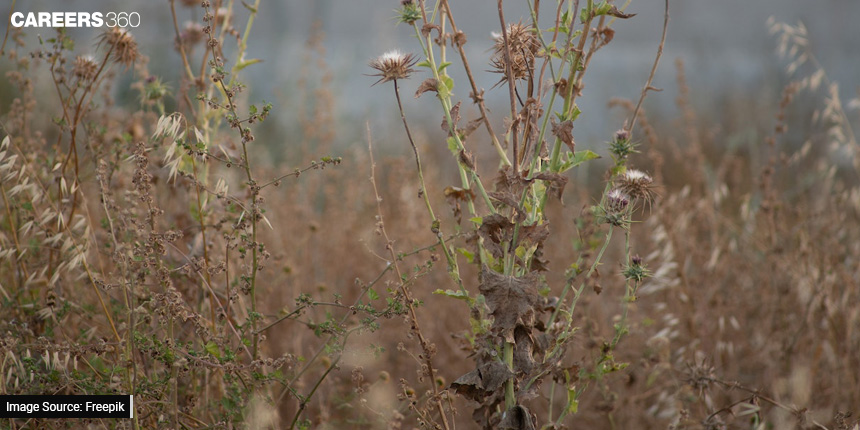Weeds: Modern Technologies That Can Prevent The Impact On Crops
Weeds are like unwanted guests at a garden party, and they've been causing trouble for farmers for a long time. They steal food, water, and sunlight from the crops. This makes it hard for farmers to grow healthy plants and earn money. Weeds also mess up the environment. In this article, we will talk about how we can stop these troublemakers. We'll look at new ideas and machines that help farmers keep weeds away from their crops. So, keep reading to learn how we can make farming better and help our food grow strong.

Impact of Weeds on Crops
Weeds are unwanted plants that grow alongside cultivated crops, and their presence can have a profound impact on agriculture. Let's explore how weeds affect crops:
Economic Consequences of Weeds
Weeds can significantly affect farmers' economic well-being in several ways:
- Yield Reduction: Weeds compete with crops for nutrients, sunlight, and water, leading to reduced yields. In some cases, crop losses can be as high as 50%.
- Increased Labour Costs: Managing weeds requires additional labour and resources. Farmers must invest time and money in weed control methods, which can strain their budgets.
- Crop Quality: Weeds can contaminate crops, reducing their quality and market value. This can lead to lower profits and difficulties in finding buyers for the produce.
- Replanting Expenses: Severe weed infestations may necessitate replanting, which incurs extra costs for seeds, labour, and time.
Environmental Consequences of Weeds
Weeds are not just a financial burden; they also have environmental implications.
- Soil Degradation: Weeds can alter soil properties, reducing soil fertility. This, in turn, affects the overall health of the ecosystem.
- Increased Pesticide Use: Farmers often resort to chemical herbicides to control weeds, which can have adverse effects on the environment, such as water pollution and harm to non-target species.
- Habitat for Pests: Weeds can provide shelter and sustenance for harmful pests, thus exacerbating agricultural issues.
- Biodiversity Loss: Weeds can outcompete native plant species, leading to reduced biodiversity in agricultural areas.
Also, check out: Extraterrestrial Life: How Is It Different From Terrestrial Life?
Modern Technologies to Prevent Weeds
Farmers and researchers have developed a variety of modern technologies and strategies to tackle the weed problem efficiently. These innovations are designed to reduce the economic and environmental impact of weeds while improving crop yields.
Integrated Weed Management (IWM)
IWM is a holistic approach to weed control that combines various strategies to reduce weed pressure. It involves:
- Crop Rotation: Alternating different crops in a field can disrupt weed growth cycles and reduce weed pressure.
- Use of Cover Crops: Planting cover crops that smother weeds and improve soil health.
- Mechanical Control: Utilising machines and tools for weed removal, such as mechanical weeders, which minimise the need for herbicides.
Precision Agriculture
Modern technology has given rise to precision agriculture, which incorporates advanced tools and techniques to manage crops efficiently. This approach can help in weed prevention:
- GPS-Guided Farming: Using GPS technology to guide machinery, allowing precise planting and weed control.
- Remote Sensing: Satellite and drone-based technology can monitor and detect weed infestations early, enabling targeted intervention.
- Variable Rate Technology (VRT): Adjusting input rates, such as fertiliser and herbicide, based on specific areas' needs, reducing wastage and environmental impact.
Herbicide-Tolerant Crops
Biotechnology has enabled the development of herbicide-tolerant crops. These genetically modified plants can withstand the application of specific herbicides, allowing for targeted weed control:
- Glyphosate-Tolerant Crops: Crops like soybeans and corn have been genetically engineered to tolerate glyphosate, a widely used herbicide.
- 2,4-D-Tolerant Crops: Some crops can withstand 2,4-D, another common herbicide, expanding the options for weed management.
Biological Control
Biological control involves using natural enemies of weeds, such as insects, pathogens, or animals, to reduce weed populations:
- Weed-Eating Insects: Introducing herbivorous insects that feed on specific weed species can help control their growth.
- Mycoherbicides: Fungal pathogens that attack weeds have been developed and used as a biological control method.
- Goats and Grazing Animals: Some farmers use goats or other grazing animals to consume weeds in pastures and fields.
Robotic Weed Control
Emerging technologies have introduced robotic solutions to weed control:
- Weed-Pulling Robots: Robots equipped with cameras and artificial intelligence systems can identify and pull weeds without harming the crops.
- Laser Weed Control: Lasers can be used to selectively target and eliminate weeds with precision.
- Weed-Sensing Drones: Drones equipped with weed detection technology can spray herbicides only on areas infested with weeds, reducing herbicide usage.
Weeds continue to be a threat to agriculture, causing economic losses and environmental harm. However, modern technologies and strategies are providing farmers with powerful tools to manage and prevent weeds effectively. Integrated Weed Management, precision agriculture, herbicide-tolerant crops, biological control, and robotic solutions are all part of the arsenal against these unwanted plants. By adopting these innovations, farmers can reduce the impact of weeds on their crops, enhance agricultural sustainability, and secure a more productive and prosperous future for the global food supply.
Also check - Boomerangs: What Is The Science Behind Them?
Applications for Admissions are open.
As per latest syllabus. Physics formulas, equations, & laws of class 11 & 12th chapters
JEE Main Important Chemistry formulas
Get nowAs per latest syllabus. Chemistry formulas, equations, & laws of class 11 & 12th chapters
JEE Main high scoring chapters and topics
Get nowAs per latest 2024 syllabus. Study 40% syllabus and score upto 100% marks in JEE
JEE Main Important Mathematics Formulas
Get nowAs per latest syllabus. Maths formulas, equations, & theorems of class 11 & 12th chapters
